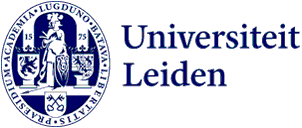Student Marten helped organise a MOOC: ‘It improved my knowledge of linguistics'
Master’s student of Linguistics Marten van der Meulen helped organise the Massive Open Online Course (MOOC) Miracles of Human Language, which ran from 30 March until 11 May 2015. What was it like for a student to organise an MOOC? And what did he learn from it?
 Master’s student of Linguistics Marten van der Meulen helped organise the Massive Open Online Course (MOOC)
Miracles of Human Language, which ran from 30 March until 11 May 2015. What was it like for a student to organise an MOOC? And what did he learn from it?
Master’s student of Linguistics Marten van der Meulen helped organise the Massive Open Online Course (MOOC)
Miracles of Human Language, which ran from 30 March until 11 May 2015. What was it like for a student to organise an MOOC? And what did he learn from it?
How did you, as a student, become involved in organising this MOOC?
Marten: “Last June Professor Marc van Oostendorp asked me if I wanted to work on a MOOC on Linguistics as an educational assistant. I was enthusiastic right away: I had already heard about MOOCs in 2012, had even enrolled in a few as a student and I was very positive about them. Together with Inge Otto, a fellow student from the Research Master’s in Linguistics, I dived in full of optimism.”How did you as a student become involved in organising this MOOC?
What were your responsibilities in this project?
“I began organising this MOOC without knowing how much work goes into one. It was quite shocking to discover what it actually entailed! For instance, I was responsible for writing questions for the quizzes, finding literature and preparing MOOC-specific media tools: this included video editing, developing storyboards and autocues, and also finding copyright-free materials suitable for our online courses.”
Those tasks all revolve around preparing the MOOC, but what did you do once the course actually began?
“Once the course began I also had to communicate with the ‘community’. What do you do when someone discovers a mistake in the MOOC? Or when someone doesn’t agree with an example from their own language? Fortunately we didn’t have to face the entire community by ourselves, as the University had a whole team to help us with communication.”
Didn’t you two also help make the interviews?
“Yes, and we even appeared on screen! We made a series of discussion clips, in which we appeared on screen to ask questions. We also interviewed experts, so we suddenly found ourselves talking to Professor Adele Goldberg from Princeton and Professor Noam Chomsky from MIT!”

What did you learn from this experience?
“I only now understand how much time goes into developing a course. But this experience has also greatly improved my linguistic basis: I really have the idea that you can wake me up in the middle of the night to teach a course. But the best thing about this MOOC was the amazing messages some of the participants sent us, from as far away as America and Japan. They told us how much they enjoyed the course and how much it changed their perspectives on language. That’s what makes these MOOCs so amazing: it’s a way of providing education to everyone everywhere.”
What is a MOOC?
MOOC is short for Massive Open Online Course and it’s a free online course available to everyone throughout the world, including non-students. Here you can find an overview of all MOOCs organised by Leiden University for 2015.
